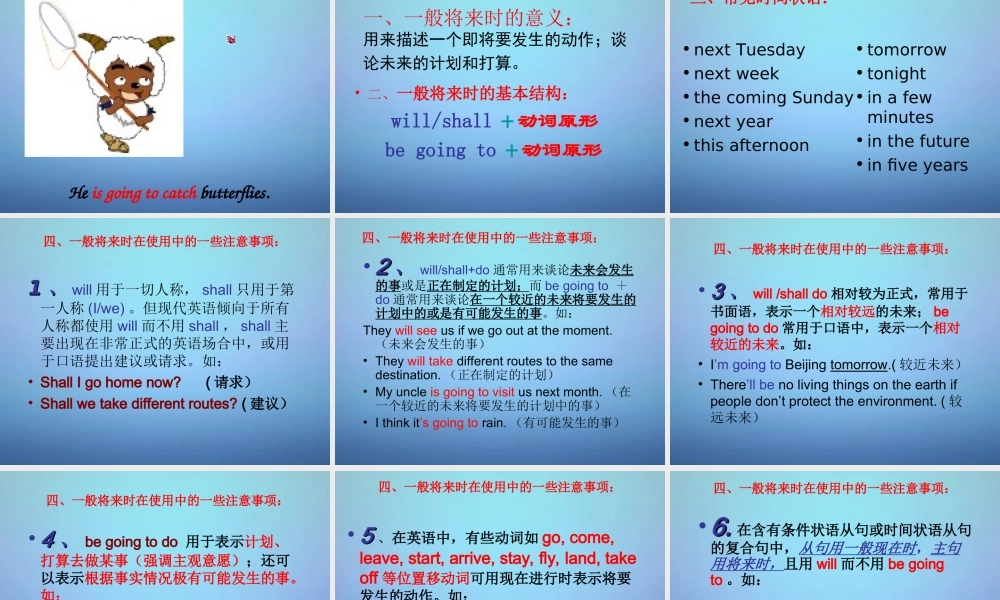一般将来时• Free talk:• What do you usually do on weekends?• What’s your favorite TV programe?• Do you like watching Pleasant Goat and Big Big wolf?What are they going to do?They are going to ride a bike.What is Big Big Wolf going to do?He is going to ski.What is Lan Yangyang going to do?He is going to sweep the floor.What is Xi Yangyang going to do?He is going to wash the clothes.What is Lan Yangyang going to do?He is going to swim.What is Fei Yangyang going to do?He is going to catch butterflies.一、一般将来时的意义:用来描述一个即将要发生的动作;谈论未来的计划和打算。 • 二、一般将来时的基本结构: will/shall +动词原形 be going to +动词原形三、常见时间状语:• next Tuesday• next week• the coming Sunday• next year• this afternoon• tomorrow• tonight• in a few minutes• in the future• in five years四、一般将来时在使用中的一些注意事项:11 、、 will 用于一切人称, shall 只用于第一人称 (I/we) 。但现代英语倾向于所有人称都使用 will 而不用 shall , shall 主要出现在非常正式的英语场合中,或用于口语提出建议或请求。如:• Shall I go home now? ( 请求)• Shall we take different routes? ( 建议)四、一般将来时在使用中的一些注意事项:• 22 、、 will/shall+do 通常用来谈论未来会发生的事或是正在制定的计划;而 be going to +do 通常用来谈论在一个较近的未来将要发生的计划中的或是有可能发生的事。如:They will see us if we go out at the moment.(未来会发生的事)• They will take different routes to the same destination. (正在制定的计划)• My uncle is going to visit us next month. (在一个较近的未来将要发生的计划中的事)• I think it’s going to rain. (有可能发生的事)四、一般将来时在使用中的一些注意事项:• 33 、、 will /shall do 相对较为正式,常用于书面语,表示一个相对较远的未来; be going to do 常用于口语中,表示一个相对较近的未来。如:• I’m going to Beijing...




